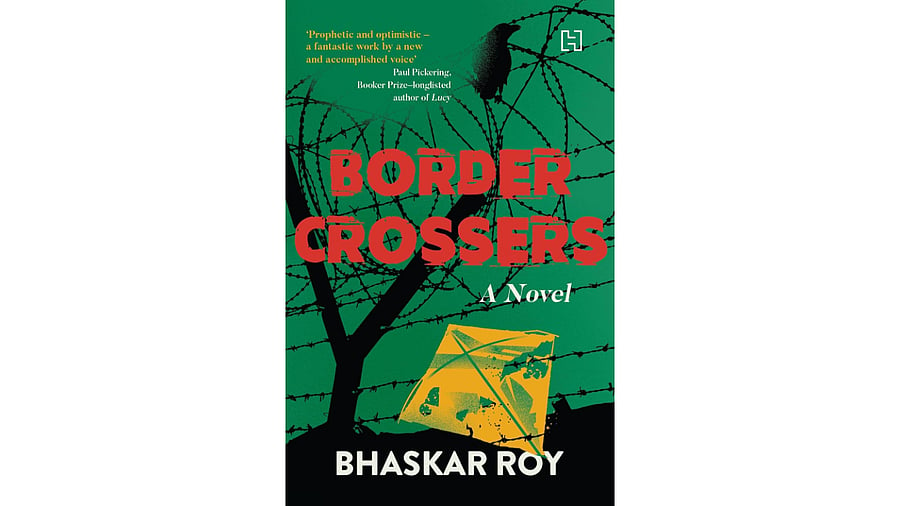
Border Crossers
Border Crossers by Bhaskar Roy follows multiple characters as they navigate displacement, immigration, retirement, betrayals, and romance. Set in the fictitious township of Noahda, this story has at its core the struggles of the illegal immigrant and their longing for home.
Arijit Basu is a retired diplomat who has decided to move to Noahda. With its quirky name and slightly out-of-the-way location, Noahda seems perfect for him as a single man. Soon, he meets Rita, a lost and desperate young woman in search of a job. Or rather, she discovers him. Rita, despite her apparent frailty and poverty-stricken rags, is a woman of some determination. She begs Arijit to take her in and hire her to work for him. And she can, he realises, cook like a master chef.
What makes her unusually mysterious, however, is her accent. And besides, her meals are elaborate, fancy, and imaginative. She can whip up Continental dishes with absolute finesse and is skilled at setting the table. She recognises hard-to-find ingredients, and some of her words sound distinctly American. Her father, she tells Arijit, worked for an American who had an interest in cooking. And yet, that does not explain her past. Arijit discovers that there is far more to this woman than he had initially supposed.
Interspersed with that storyline is the tale of Nandita, Arijit’s romantic partner. A former journalist and socialite, Nandita takes a liking to Rita immediately and takes her shopping. Soon Rita is comfortable and happy, and she enjoys making delicious meals. But trouble brews with the arrival of Jamal, who becomes interested in Rita. And a certain mullah and a major who manages to say exactly the right things at exactly the right time to stir the fire in Jamal’s heart.
Border Crossers has an interesting theme and premise. Rita misses her homeland and suffers from homesickness. Jamal is an obsessive, easily impressionable young man who is promptly brainwashed. Nandita and Arijit, although involved with each other, somehow haven’t sought marriage. And yet, the book’s shifting points of view are disjointed and the narrative chaotic.
Characters fade in and out with confusing alacrity. There are too many individuals here, each trying to sing songs, serenade each other, or criticise the country they are in. Religious fanaticism plays a prominent role, and Arijit’s disdain for his home country’s civilisation is glaringly apparent. He inwardly mocks his religious neighbours and the gods they worship. Everything, it seems, is superstition to him. The government, with its slogans and beliefs, comes across as singularly unintelligent. Ministers are flatly portrayed — all they have to define them is bigotry.
Culture, for Arijit, is wine, Paris, and European cuisine. There are glimpses into his old life as well. The narrative weaves in and out of the past as pieces are put together, a lot of which could have been trimmed. His romance with Nandita plays a significant role. Nandita and Rita are adequately characterised, although both women are inconsistently portrayed, as is Jamal. As the story takes a darker turn, these characters sink deeper and deeper into trouble…and more individuals are introduced, including loud and bombastic television journalists.
Overall, while the novel’s premise holds promise, the story is bloated and could have been cut short. There are too many events, character histories, and characters themselves to keep track of. The word ‘laugh’ is used excessively, sometimes multiple times on a single page. The time skips might have been effective with more straightforward prose.
Instead, with an attempt at lyricism, words run into each other in ways that often seem pretentious. Arijit’s observations, as well as the primary narration, are politically charged to the point of prejudice. The illegal immigrants of the novel are contemptuous of the land they seek refuge in, and Arijit appears to agree with their points of view.
Focusing on their trials and the hardships that brought them to foreign shores might have been more effective. As it is, those histories are not as clear as they could have been.